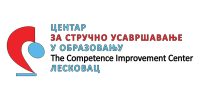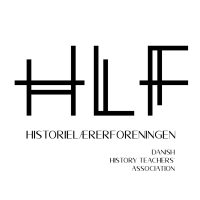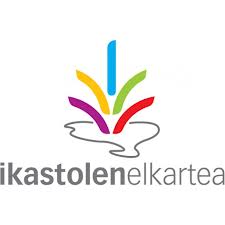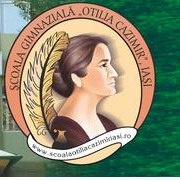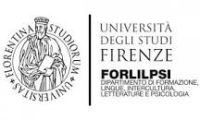The School EducatioN for Sustainable and Equal Inclusion [SENSEI] project will create and deliver courses on inclusive education for both pre-service and in-service teachers, by looking at current good practices in inclusion, testing them in different contexts, and integrating them with new approaches.
Why this project?
In 1916, Charles H. Wesley(1) mentioned that history and citizenship teachers very often feel challenged by having children in their classrooms who come from various national and religious backgrounds, having different social status, mental and physical skills, children not mastering or having poor knowledge of the language. Today, teachers from across Europe still struggle with diverse classroom. In fact, in the past years we have assisted to an increased in the amount of teachers requiring subject-specific training that will help them create and follow through with educational actions that cater to every child’s individual needs, without removing them from the classroom into a separate learning environment.
We believe that by working together in inclusive classrooms, children become more tolerant and can engage with different students with different learning styles, which further enables them to learn from each other and improve their communication skills, empathy, intercultural and civic competences, ultimately resulting in a wider understanding and internalisation of those values that are at the core of the European Union.
In this project, we will develop a module for Initial Teacher Training and a hybrid International Continued Professional Development course that help in- and pre-service teachers acquire the competences needed to differentiate and scaffold their lessons so as to make the (history) classroom experience more meaningful, motivating, and inclusive for all students.
Our approach to inclusion
In this project, we will have a 360 degrees vision of inclusive education. We will research practices for the:
- inclusion of students with special education needs, including high-attaining students;
- inclusion of students with a migrant background;
- inclusion of students that are part of national, cultural, or religious minorities;
- inclusion of students from a different socioeconomic background;
- inclusion of students that are member of the LGBTQI+ community; and
- equitable representation of female students.
Concrete results
This project will result in:
- The creation of a network of teachers, teacher trainees, teacher trainers, and other relevant stakeholders who are working on and interested in inclusive education;
- The issuing of recommendations for Teacher Training Institutes on teaching inclusion and diversity;
- A module for Teacher Training Institutes on inclusive education
- A webinar series and a self-paced course on Inclusive Education
- Several in-person training opportunities at international events
Achievements So Far
We have achieved quite the milestones. We developed an internal measurement instrument to understand the impact of our work. We delivered a series of webinars and a conference on Serbia, both on the topic of inclusive, participatory education. Through these efforts, we are building the SENSEI Network (you can join via the signup form below) of likeminded professionals who actively contribute to the future of education in Europe.
We are also developing an educational game to work on inclusivity topics in your classroom! It’s called SENSEI’s Puzzles of Empathy. The game provides different roles for each student to together solve various scenarios about social and ethical dilemmas of varying difficulty levels. You can access the pilot version via the following links:
If you test it in your classroom, we would highly appreciate your quick feedback, which you can submit via this short questionnaire.
Current Opportunities
The SENSEI Thoughtful Thursdays online sessions are taking place! They are meant as coffee-break moments to zoom out of our daily activities and have a collegial discussion about inclusive education – something we are all passionate about.
These are 30-minute conversations, each about a different topic related to inclusive education. Seven weekly sessions are planned on Thursdays starting at 15:30 CEST. The dates are May 15-22-29 and June 5-12-19-26.
Since Thoughtful Thursdays are designed exclusively for the SENSEI Network members, you can join by becoming a part of the community – just fill in the questionnaire below (if you haven’t already)!
We will issue certificates to participants who actively participate in at least four out of seven sessions.
Get involved!
There are several ways to get involved in the project. You can participate by:
-
- Sharing good practices in inclusive education
- Helping us test the collected practices in your classroom
- Joining our course pilots
- Joining the SENSEI Network by completing this form:
We will be sharing more information on how to join the project along the way. If you would like to know more, you can reach out to the project coordinators or to us at secretariat@euroclio.eu.
(1) Wesley, C.H., 1916. The problems of sources and methods in history teaching. The School Review, 24(5), pp.329-341.
SENSEI Thoughtful Thursdays 7
June 26 @ 3:30 pm - 4:00 pm
SENSEI Thoughtful Thursdays 6
June 19 @ 3:30 pm - 4:00 pm
SENSEI Thoughtful Thursdays 5
June 12 @ 3:30 pm - 4:00 pm
SENSEI Thoughtful Thursdays 4
June 5 @ 3:30 pm - 4:00 pm

Funded by the European Union. Views and opinions expressed are however those of the author(s) only and do not necessarily reflect those of the European Union or the European Education and Culture Executive Agency (EACEA). Neither the European Union nor the granting authority can be held responsible for them.
Project Coordinator
Ivan Milovanov (ivan@euroclio.eu)


